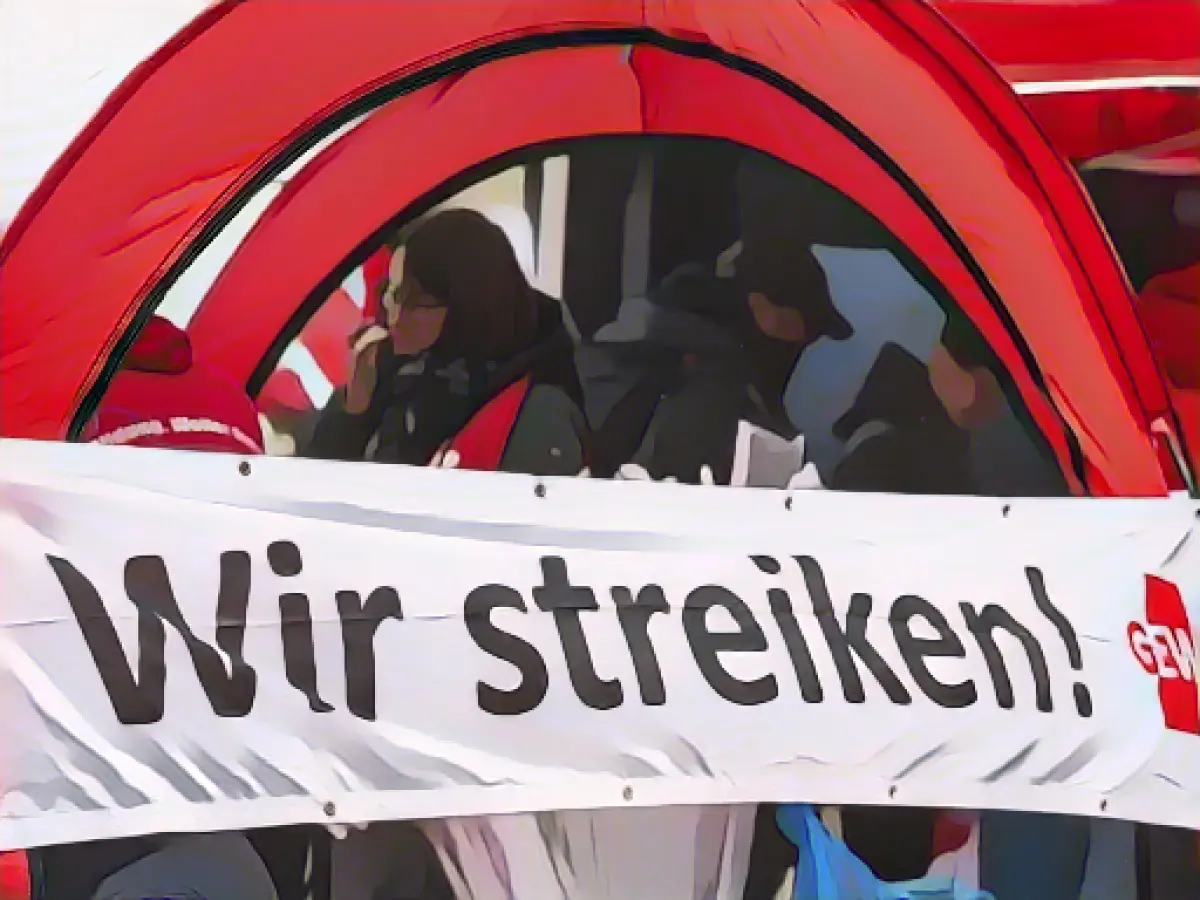Union Urges "Education Action Day" for State Workers
Amidst ongoing negotiations for a new collective agreement, the Education and Science Union has urged nursery school teachers, teachers, social workers, and university staff employed by federal states to take part in the "Education Action Day." The purpose is to escalate pressure during the negotiations, aiming for improved wages and benefits for state employees and a collective agreement for student employees.
In Saxony-Anhalt, the GEW has called upon their members, along with student employees at universities and research institutions, to participate in a one-day demonstration. The joint rally in Leipzig, organized by the GEW in Saxony, Saxony-Anhalt, and Thuringia, is expected to attract approximately 1,000 participants, as per a union spokesperson.
Unions are advocating for a 10.5% wage hike for state employees, with a minimum monthly increase of 500 euros. They also seek a collective agreement for all student employees, with a one-year duration.
While this text primarily focuses on the Education and Science Union's call for action, it's worth noting that strikes and labor disputes aren't limited to the education sector in Germany. These issues extend to other sectors, including transportation, hospitals, water boards, and rubbish collection.
Recent developments include a 24-hour strike at Berlin's urban transit operator BVG, affecting bus, tram, and subway services, except for the S-Bahn. Similar strikes have also occurred in Frankfurt, Essen, and Hamburg. The Verdi union, in these instances, is demanding a wage increase of €750 with a 12-month contract, along with other allowances.
The strikes are causing significant disruptions to public services, impacting commuters and residents in various cities. Some critics argue that the Verdi union's strategy of isolated and fragmented warning strikes isn't effective in achieving broader labor movement goals.
The strikes in Germany coincide with significant social cutbacks and rearmament efforts. Both major parties support austerity measures and increased militarization, prompting criticism towards the unions for supporting such policies.
In conclusion, while the focus remains on the Education and Science Union's "Education Action Day," it's essential to acknowledge that labor disputes and strikes are prevalent across various sectors in Germany, causing disruptions and generating debates around wages, working conditions, and government policies.








